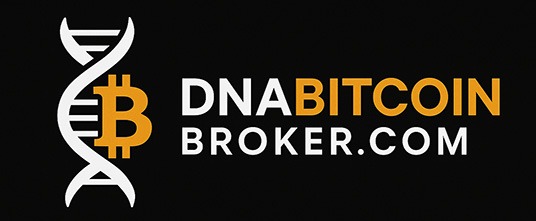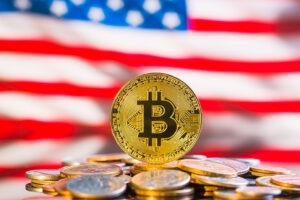“Sovereign adoption of Bitcoin is driven by necessity, not ideology.” — DNA Crypto.
With Bitcoin becoming a legitimate financial instrument, the debate has shifted from whether countries should embrace it to how and when they should do so. As sovereign wealth funds enter the crypto market, Spot ETFs provide direct exposure, and geopolitical uncertainty is prompting nations to hedge against it. Perhaps we are witnessing the beginning of a global sovereign Bitcoin accumulation period.
From El Salvador’s novel leap forward to the speculative whispers in Argentina and now to institutional interest in the United States, the Middle East, and Europe, the geography is changing quickly. So what does all that mean for investors, and which country could be next?
El Salvador: Still the Frontline of Sovereign Bitcoin Adoption
In 2021, El Salvador became the first nation to adopt Bitcoin as legal tender. Fast-forward to 2025 — the Central American country is no longer an outlier but a pioneer, and its early bet already seems prescient. Although global financial institutions have been sceptical, El Salvador has been adamant- regularly buying BTC, mining using geothermal and issuing “Bitcoin Bonds” to finance national projects.
“Bitcoin is good for the country, good for progress, and good for innovation.”
— Nayib Bukele, President of El Salvador (2024)
Although the country’s treasury strategy is akin to a Bitcoin-focused reserve, its informal sovereign-wealth management approach contrasts with traditional fund management. With BTC prices surging at the end of 2024 and the beginning of 2025, El Salvador now finds itself in a favourable position on its crypto holdings, validating its decision to invest in a decentralised asset amid international financial turmoil.
The Rise of Sovereign Wealth Funds in Crypto
The actual game changer in 2025 is the participation of sovereign wealth funds (SWFs). Traditionally, long-term holders of stocks, real estate, and bonds, such as SWFs, are experimenting with Bitcoin.
The US sent ripples in the crypto industry in February 2025 when it unveiled its first national sovereign wealth fund and a strategic Bitcoin reserve. Although this fund will not be operational until late 2025/early 2026, the political signal is clear: Bitcoin is now viewed as a national strategic asset.
“Bitcoin has matured into a globally recognised store of value. It would be imprudent for national reserves to ignore it.”
— U.S. Senate Committee on Banking (Feb 2025 report)
Bhutan was an early adopter—it has quietly accumulated over 10,000 BTC, or approximately €1 billion, through its sovereign Druk Holding and Investments.
“We see Bitcoin as a long-term strategic asset aligned with our national interests and economic innovation.”
— Druk Holding and Investments (Official Statement, 2024)
Abu Dhabi’s Mubadala Investment Co. has also made headlines with large-scale ETF investments in Bitcoin, and Wisconsin’s public fund has followed suit.
“Our move into Bitcoin ETFs reflects the importance of digital assets in a modern investment portfolio.”
— Scott Goodwin, Chief Investment Officer, Wisconsin Investment Board (2025)
The steadily growing list of institutional adopters, boosted by the accessibility of spot Bitcoin ETFs, gives Bitcoin legitimacy that only institutional capital could grant.
Argentina: The Next Mover
All eyes are on Argentina. The country’s persistent inflation, peso devaluation, and political uncertainties are significant factors that make it a favourable environment for Bitcoin investment. Though Argentina hasn’t officially adopted BTC at the sovereign level, President Javier Milei has openly supported decentralised money.
“Central banks are a scam; I believe in Bitcoin and freedom.”
— Javier Milei, President of Argentina (2023 campaign)
Grassroots adoption of Bitcoin in Argentina is already widespread, with citizens using Stablecoins and BTC to safeguard their wealth. The transition from retail purchasing to state-level accumulation may not be far off, particularly as Bitcoin is increasingly framed as a geopolitical hedge.
Why Sovereign Adoption Matters Now
The timing is no accident. 2025 is a breakout year for sovereign Bitcoin adoption as several actors are converging to make it a reality:
– Macroeconomic instability: Rising inflation, debt crises, and distrust in fiat systems push nations to diversify.
– Institutional infrastructure: The launch of US Bitcoin Spot ETFs in 2024 unlocked a secure and regulated way for SWFs to gain exposure.
– Bitcoin’s scarcity and halving: The 2024 halving will tone down new BTC issuance, tightening supply and causing a race to accumulate.
– Technological evolution: Tools like the Lightning Network and custody measures make Bitcoin more viable for state actors.
– Decentralisation as a geopolitical hedge: Bitcoin’s neutrality and resistance to censorship appeal to countries looking to escape the influence of traditional powers.
“The halving is not just a technical event—it is a geopolitical accelerant.” — Lyn Alden, Macro Economist (2025)
Implications for Investors
The effects are widespread for individual and institutional investors. As more countries adopt Bitcoin as a reserve asset, directly or through sovereign funds, this may trigger a supply shock and drive prices into an even greater upward spiral. Bitcoin supply is capped at 21 million coins; thus, sovereign adoption comes with a competitive element: the earlier the entry, the larger the possible positive outcome.
Furthermore, Bitcoin’s ability as a macro hedge is harder to deny. When fiat currencies are printed in response to a financial crisis, Bitcoin’s scarcity and decentralised nature become increasingly alluring not to geeks but to governments and central banks.
Geopolitical Arms Race for Bitcoin
2025 is no longer hypothetical regarding sovereign Bitcoin adoption. It’s here—and expanding. El Salvador sparked, Bhutan followed quaintly, and now the US is in the ring, along with Abu Dhabi and possibly Argentina.
“The digital gold rush has begun. Governments that wait too long may be priced out.”
— Fidelity Digital Assets Research (Q1 2025 Report)
The question isn’t if more countries will join. It’s when, and who can afford not to? While nations fight for a share of Bitcoin’s fixed pie, investors must keep a keen eye on the arms race. The next sovereign step may be minutes away – and the market is already responding.
In Europe, the message is clear: Bitcoin is no longer fringe. It’s sovereign.
Image Source: Adobe Stock
Disclaimer: This article is for informational purposes only and does not constitute legal, tax or investment advice.
Register today at DNACrypto.co.












